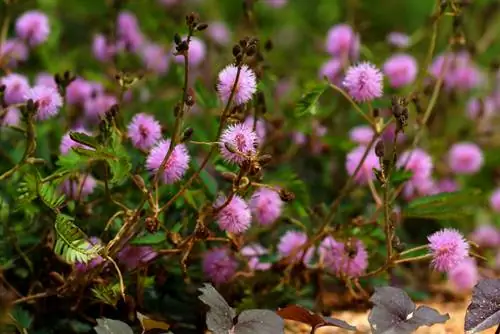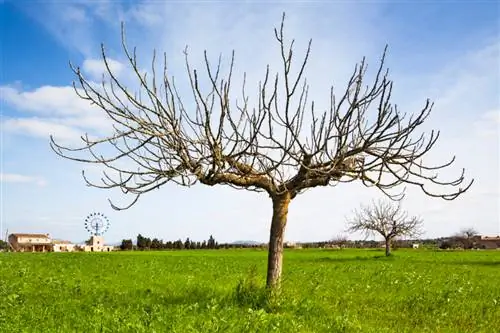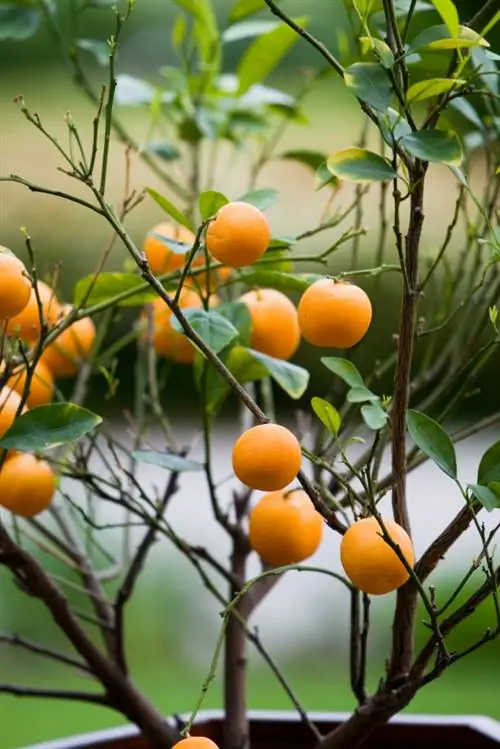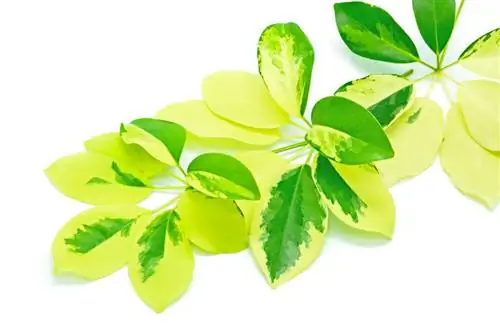- Author admin [email protected].
- Public 2023-12-16 16:46.
- Last modified 2025-01-23 11:21.
There are garden lovers who despair of mimosa. It is not for nothing that it is considered a truly sensitive houseplant. As soon as the care conditions or location are not optimal, it reacts by decreasing flowering or losing all of its leaves. What can you do about it?
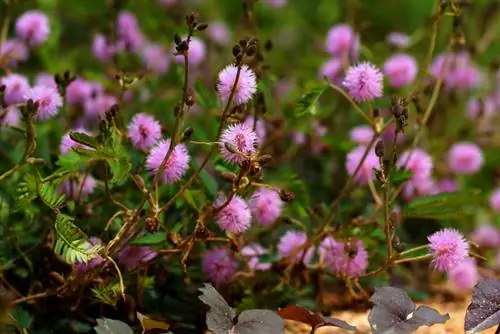
Why is my mimosa losing its leaves?
If a mimosa loses its leaves, the cause may be an unsuitable location, incorrect care, extreme temperatures or frequent touching of the leaves. Optimize site conditions, watering and humidity conditions to strengthen the plant.
Why does mimosa lose its leaves?
If a mimosa loses a few leaves, it is not a cause for concern. This is a natural process that creates space for new shoots. If the leaves turn yellow or the houseplant loses many or all of its leaves, either a poor location or incorrect care are responsible:
- Location too dark or too sunny
- too cool temperatures
- too warm place
- Substrate too moist or too dry
- Leaves were touched too often
Create optimal location conditions
Mimosa likes it bright and warm. However, they do not tolerate direct sunlight very well. Place them so that they only get direct sun in the morning and evening.
The optimal room temperature is between 18 and 22 degrees. A mimosa shouldn't be cooler or warmer.
If it is very warm in the room, increase the humidity by placing bowls of water. You can also spray them with soft water occasionally.
Water mimosa properly
The most common care mistake for mimosas is watering. The plant either receives too much or too little water. The root ball must never dry out completely, but it must also never be kept too wet. Only water when the substrate is two to three centimeters dry at the top. Do not leave water in the saucer.
For watering, use soft tap water or, even better, rainwater.
Avoid frequent touching of the leaves
Although it is an interesting sight, avoid touching the mimosa leaves frequently. They fold up when touched mechanically for about half an hour and then open again.
This robs the mimosa of a lot of energy, from which not all types of mimosa recover quickly.
Tip
Mimosa doesn't cope well with bad air. This applies, for example, to tobacco smoke. Therefore, only care for a mimosa in rooms where there is no smoking.

